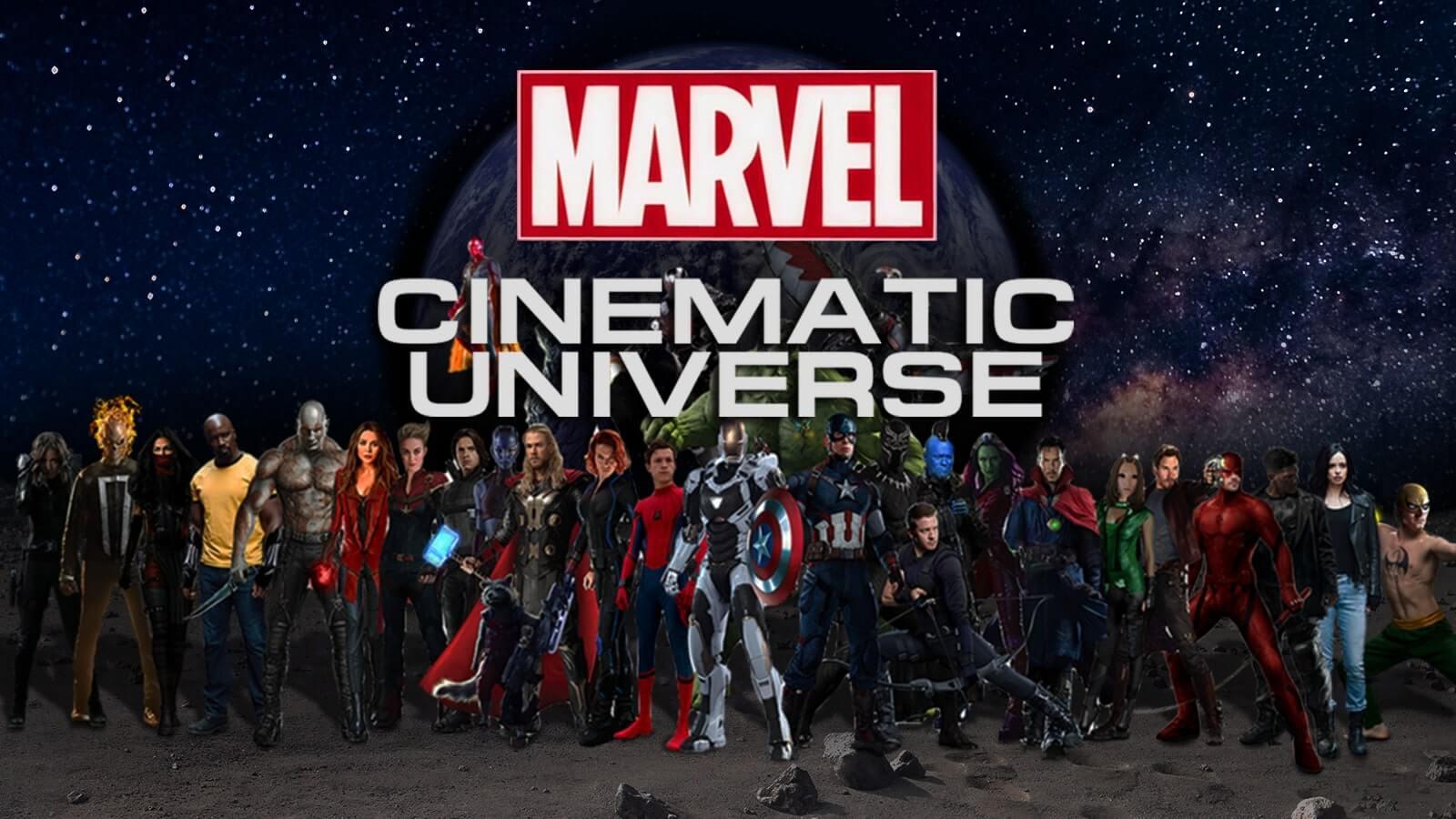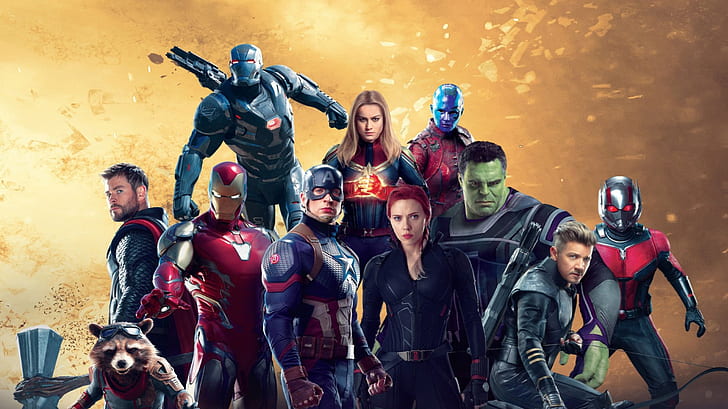The Beginning of Marvel Studios
In the world of cinema, few franchises have left as indelible a mark as the Marvel Cinematic Universe (MCU). Beginning with the release of "Iron Man" in 2008, the MCU has grown into a cultural phenomenon, captivating audiences around the globe with its epic storytelling, charismatic characters, and groundbreaking visual effects. As we dive into this cinematic universe, we'll take a closer look at its origins, evolution, and impact on both the film industry and popular culture.
The Birth of the MCU
The MCU was born from the visionary minds at Marvel Studios and their desire to bring beloved comic book characters to the big screen in an interconnected and ambitious way. Kevin Feige, the president of Marvel Studios, played a pivotal role in orchestrating the shared universe concept. This approach allowed individual superhero films to coexist within a larger narrative, culminating in team-up films like "The Avengers."
Phase One: Building Blocks
Phase One of the MCU set the foundation for what was to come. It started with "Iron Man," starring Robert Downey Jr. as the charismatic Tony Stark, and it was an immediate hit. "The Incredible Hulk" followed, though it's often considered the outlier of the MCU due to its recasting of the titular character.
As Phase One continued, movies like "Thor" and "Captain America: The First Avenger" introduced audiences to new heroes, each with their own unique origin story. These standalone films paved the way for the epic crossover event, "The Avengers," which brought Iron Man, Thor, Captain America, Hulk, Black Widow, and Hawkeye together to battle the formidable Loki.
The Avengers' success solidified the MCU's formula and set the stage for a new era of superhero filmmaking.
Phase Two: Expanding the Universe
Phase Two of the MCU expanded upon the foundation laid in Phase One. It introduced new heroes like Ant-Man and the Guardians of the Galaxy while delving deeper into the backstories of established characters. "Iron Man 3," "Thor: The Dark World," and "Captain America: The Winter Soldier" explored the personal challenges faced by these heroes.
One standout film from this phase was "Guardians of the Galaxy," directed by James Gunn. Its unique blend of humor, action, and heart, along with its eclectic cast of characters, turned it into a surprise hit. The success of "Guardians" demonstrated the MCU's ability to take risks and experiment with different genres within the superhero framework.
Phase Two also gave us "Avengers: Age of Ultron" and "Ant-Man," further cementing the interconnected nature of the MCU. The introduction of the enigmatic Infinity Stones hinted at a grander narrative yet to be unveiled.
Phase Three: Cosmic Threats and Game-Changing Moments
Phase Three of the MCU raised the stakes considerably. It included some of the most critically acclaimed and financially successful films in the franchise, beginning with "Captain America: Civil War." This film pitted hero against hero in a gripping ideological conflict, setting the stage for future tension within the Avengers.
"Doctor Strange" introduced the mystical side of the MCU, while "Guardians of the Galaxy Vol. 2" explored themes of family and identity. However, it was "Black Panther" and "Spider-Man: Homecoming" that resonated deeply with audiences, breaking new ground in terms of representation and diversity.
The arrival of Thanos, the Mad Titan, as the primary antagonist in "Avengers: Infinity War" marked a turning point in the MCU. The film's shocking ending left audiences in suspense and anticipation for the epic conclusion, "Avengers: Endgame." This blockbuster event brought the Infinity Saga to a thrilling and emotional close.
Beyond the Movies: Expanding the MCU
The MCU extends beyond the big screen. Television series like "Agents of S.H.I.E.L.D.," "Daredevil," "Jessica Jones," and "Luke Cage" explored different corners of the MCU and introduced compelling characters. However, it was Disney+ that truly expanded the MCU's reach with series like "WandaVision," "The Falcon and the Winter Soldier," and "Loki."
These series provided a deeper exploration of character development and allowed for storytelling nuances that movies couldn't accommodate. They also introduced the concept of the multiverse, which promises to play a significant role in future MCU endeavors.
The Impact of the MCU
The Marvel Cinematic Universe's influence on the film industry and popular culture cannot be overstated. It has redefined how franchises are built and maintained, emphasizing long-term planning and interconnected storytelling. The MCU's success has inspired other studios to create their own cinematic universes, but none have matched its level of consistency and quality.
Additionally, the MCU has had a profound impact on representation in cinema. Films like "Black Panther" and "Captain Marvel" have pushed boundaries and showcased diverse voices and perspectives, contributing to a more inclusive cinematic landscape.
Conclusion
The Marvel Cinematic Universe is more than just a series of superhero movies; it's a cultural phenomenon that has captivated audiences for over a decade. From its humble beginnings with "Iron Man" to the epic conclusion of the Infinity Saga in "Avengers: Endgame," the MCU has consistently delivered compelling characters, intricate storytelling, and groundbreaking visual effects.
As the MCU continues to expand with new films and series, it promises to remain a dominant force in the world of entertainment, continuing to shape the way we experience superhero stories on the big and small screens. Whether you're a lifelong fan or a newcomer to the MCU, there's no denying its enduring impact on the world of cinema and storytelling as a whole. Excelsior!
With the conclusion of the Infinity Saga, the MCU has entered a new era. Phase Four, which began with the Disney+ series "WandaVision" and continued with films like "Shang-Chi and the Legend of the Ten Rings" and "Eternals," promises fresh and exciting narratives. The introduction of characters like Shang-Chi and the Eternals hints at the MCU's commitment to exploring diverse and lesser-known corners of the Marvel Universe.
Upcoming projects, such as "Doctor Strange in the Multiverse of Madness," "Thor: Love and Thunder," and "Spider-Man: No Way Home," suggest a continued emphasis on multiverse concepts, which will undoubtedly have far-reaching implications for the MCU's future. The multiverse introduces endless storytelling possibilities, including the potential return of characters from different dimensions and alternate realities.
In addition to these highly anticipated films, the MCU continues to expand its presence on Disney+. Series like "Hawkeye," "Ms. Marvel," and "Moon Knight" will further intertwine with the larger cinematic narrative, making it essential for fans to engage with both the movies and the streaming content to fully appreciate the evolving MCU landscape.
The MCU Beyond Movies and TV
The Marvel Cinematic Universe's influence extends beyond the screen. It has reshaped the way audiences engage with storytelling and has fostered an enthusiastic fan community. Conventions like San Diego Comic-Con and D23 have become major showcases for MCU announcements, generating immense excitement and anticipation among fans.
Furthermore, the MCU has inspired a wave of creativity in fan art, fan fiction, and cosplay. Devotees celebrate their favorite characters through various forms of artistic expression, and the MCU's commitment to honoring the source material provides ample material for these endeavors.
Merchandising and licensing opportunities have also flourished, with MCU-themed products ranging from action figures to clothing to video games. The franchise's widespread appeal has made Marvel superheroes household names and lucrative brands.
Conclusion: A Marvelous Legacy
As the Marvel Cinematic Universe continues to evolve and expand, it leaves an indelible mark on cinema and popular culture. With its compelling characters, interconnected storytelling, and commitment to diversity, the MCU has not only set new standards for superhero movies but also revitalized the art of serialized storytelling on the big and small screens.
As fans eagerly await the next installment of their favorite heroes' journeys, the Marvel Cinematic Universe remains a testament to the power of storytelling, imagination, and the enduring appeal of the superhero genre. With its ability to entertain, inspire, and connect people from all walks of life, the MCU is a true marvel in the world of entertainment, and its legacy is sure to endure for generations to come.






